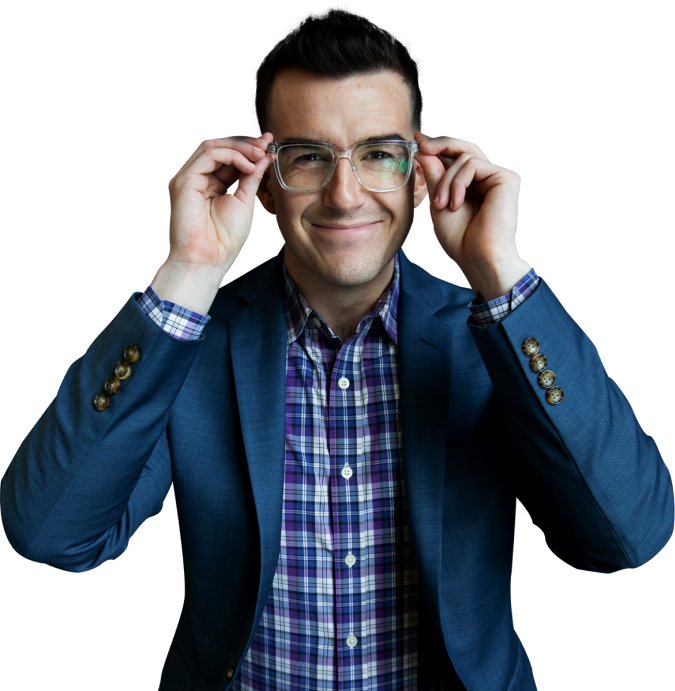Whole Foods, whose 500 stores employ over 91,000 people, made waves in 2017 when Amazon acquired the company for $13.7 billion. Workplace messaging powerhouse Slack was acquired by Salesforce recently for a whopping $27.7 billion. And YouTube, the third most-popular website on the internet, has over 5 billion videos on its platform watched every single day.
What do these business success stories all have in common? Their CEOs – leaders at the forefront of their industries – have degrees in the liberal arts.
YouTube CEO Susan Wojcicki’s original plan after studying history and literature at Harvard was to pursue a PhD and go into academia. A piqued interest in technology one summer led her to add a computer science elective in her senior year.
In 1998, she rented out her garage to two dudes named Larry and Sergey, who during that time built the search engine that would become Google. Wojcicki later became Google employee #16, eventually persuaded the founders to acquire YouTube in 2006 for $1.65 billion - an acquisition lauded as one of the best buys of the 21st century – and eight years later was tapped for the CEO role.
Related: This One Video Convinced Google to Buy YouTube in 2006
The CEOs of YouTube, Slack, and Whole Foods All Have Liberal Arts Degrees. Here’s Why That Matters - Post Outline
It’s an unusual twist for a literature major. But is it really? Liberal arts thinkers have used their smarts to get to the top of the business food chain more often than you might think:
- Former Avon CEO Andrea Jung has a degree in English from Princeton,
- Chipotle Founder and former CEO Steve Ells studied art history at the University of Colorado, and
- Former American Express CEO Kenneth Chenault was a history major before becoming the third African-American CEO of a Fortune 500 company.
This topic of career reinvention is a personal one for me. What I do now as a content marketing consultant couldn’t be further from what I studied in school; with not one but two degrees in classical French Horn, I was an aspiring orchestra musician with big dreams – and very little business acumen at first.
For years, I looked down at my music school experience as a waste of money and opportunity. But over time, I’ve come to realize that the skills I honed – creative thinking, tenacity, and performing under pressure – have become some of my greatest entrepreneurial weapons.
If you’re a thinker or a performer, entrepreneurship may be a perfect fit for you. Here are three ways to leverage your liberal or fine arts background and get a running start.
Fully Work Through Your Value Proposition
Product development requires rigorous testing and a willingness to work through your logic all the way down to the bone. If you ever studied classics, you know that the trivium – grammar, logic, and rhetoric – was taught first to pupils of the past because its fluency ensured the comprehension of all other studies.
Slack CEO Stewart Butterfield credits his passion for working through argument to his background in philosophy. According to the serial entrepreneur, studying the great thinkers taught him to write well and showed him that, all throughout history, that which was thought to be impossible suddenly became possible time and time again.
Additionally, research from the Andrew W. Mellon foundation debunked the notion that studying the arts or humanities is a career death wish. While a liberal arts degree may not have you earning the same as engineers in your twenties, graduates achieve economic mobility more often than mainstream advice would have you believe.
What you will have in your twenties is a propensity for good ideas. Your value proposition is like a term paper or thesis, except that it’s more fun because it will potentially make you money. A lot of money. Be relentless with revisions and frequently test your value proposition in the market.
Scan For Emerging Opportunities
Markets and technology are constantly shifting, and as these tectonic plates move new opportunities open up that have sudden and massive unmet demand. Before Whole Foods CEO John Mackey co-founded the health food giant in 1980, he and his girlfriend had a standalone grocery store, SaferWay, that was a market on the first floor and a restaurant on the second to capture multiple emerging markets.
Related: How Whole Foods CEO John Mackey Is Leading a Revolution in Health and Business
When you act fast and are first to market, you’ll get a headstart on capturing market share. Liberal arts graduates are fantastic at these kinds of positioning puzzles; if you have a complex problem or need to blend together multiple industries, consider getting a liberal arts brain on it to generate winning ideas. You’ll thank yourself later.
Channel Creativity For A Competitive Advantage
Sally Hogshead, author of the New York Times bestseller Fascinate: How To Make Your Brand Impossible To Resist, points out that “different is better than better”. Being the best usually requires extensive research, many product iterations over many years, and huge expenses.
Instead of trying to become the best, be different instead. You’ll need some creative thinking to find your way, so here are a few tips to jumpstart your left brain:
- Capture ideas in the moment. Set up a way to quickly jot down the strikes of lightning that pop into your head throughout the day. Voice memos or a separate page in a note taking app on your phone are great options.
- Practice finding an uninterrupted flow state. I’m still haunted by that 2016 study on worker behavior that found employees are distracted an average of once every 40 seconds. To develop your focusing muscles, make your environment more conducive to concentration.
- Read news outside your industry. Knowing your beat is important, but observing other industries can give you insights you won’t find within your own echo chamber.
It’s never too late to tweak your career trajectory or experiment with something new. Keep yourself in the know, lean in to past experiences, and you might find that critical thinking gives you a winning edge in business.
*
This post was originally written for Entrepreneur.com. Copyright 2021 by Entrepreneur Media, Inc. All rights reserved.
Thanks for reading. 🙏🏼
Keep up the momentum with one or more of these next steps:
📣 Share this post with your network or a friend. Sharing helps spread the word, and posts are formatted to be both easy to read and easy to curate – you'll look savvy and informed.
📲 Hang out with me on another platform. I'm active on Medium, Instagram, and LinkedIn – if you're on any of those, say hello.
📬 Sign up for my free email list. This is where my best, most exclusive and most valuable content gets published. Use any of the signup boxes in this article, or go to the newsletter page here.
🏕 Up your marketing game: Camp Wordsmith™ is my business and writing program for small business owners and online entrepreneurs. Get instant access to resources and templates guaranteed to make your marketing hustle faster, better, easier, and more fun. (It's also "glamping"-themed – who doesn't love luxurious camping?!) Learn more here.
📊 Hire my marketing company: Hefty Media Group provides consultation and done-for-you services in content marketing. We're a certified diversity supplier with the National Gay & Lesbian Chamber of Commerce, and we'll make you sound damn good via the written word. Learn more here.
© 2021, 2022, Hefty Media Group. All Rights Reserved.


